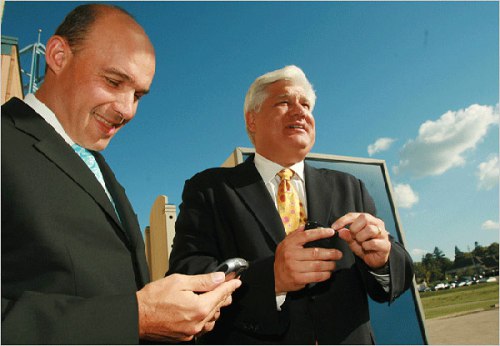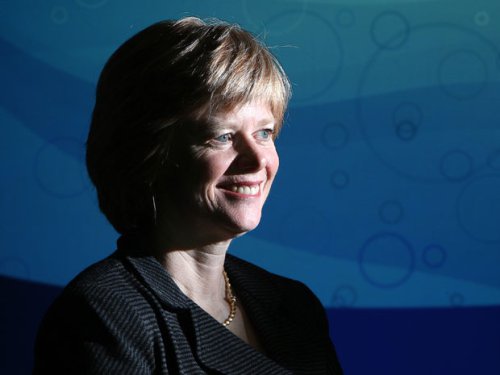RIM tends to appoint new chairman

All this is happening against the background of a consistently quarterly decline in revenues, RIM’s evaporating share in the smartphone market, product delays and a sharp drop in company stock prices.
Under pressure from shareholders, Research In Motion is preparing to make corporate shifts, as a result of which its current co-chairmen and CEO, Mike Lazaridis and Jim Balsillie, can remain only the CEO. This was reported by the Financial Post, citing its sources.
Currently, the BlackBerry smartphone maker has a unique management structure, headed by the two founders, Lazaridis and Balsilli, who are both CEOs and chairmen. Since July last year, a commission of seven independent directors of a Canadian company has been analyzing its management structure.
The widely expected commission report is scheduled for January 31. According to sources from the Financial Post, the final decision has not yet been made, but it is expected that, as a result, the roles of chairman and CEO will be separated and that the position of independent chairman will be taken by one of the current independent directors Barbara Staimist.

')
Barbara Staimist became a board member of RIM in 2007. Prior to that, she headed the operator of two Canadian stock exchanges TSX Group and was the CEO of the largest Canadian bank Royal Bank of Canada.
All this is happening against the background of a consistently quarterly decline in revenues, RIM’s evaporating share in the smartphone market, product delays and a sharp drop in company stock prices.
RIM shares fell by 75% in 2011 due to corporate failures, public relations blunders and the most massive layoffs in their history. Even the December announcement that Lazaridis and Balsillie cut their annual salary to one dollar was met with criticism from analysts.
Most of the discontent with RIM in 2011 was caused by the loud launch of the failed BlackBerry PlayBook tablet, a device that was supposed to be RIM's answer to the Apple iPad. Although some analysts had expected RIM to sell several million PlayBooks in the first year, RIM has sold only about 850,000 today.
On January 3, RIM lowered the price of a PlayBook in the United States to $ 299 for models with 16 GB, 32 GB and 64 GB of memory. I wonder who in this situation will choose the first two?

Despite the rapid decline of all RIM indicators by the end of the year, the CEO tandem remained unswervingly confident that the plan to transition BlackBerry smartphones to a new operating system would solve all the problems.
The release of the new generation of BlackBerry was expected in the first half of 2012, but in December RIM announced that the first smartphones with BB 10 will be available only in the second half of 2012.
According to analyst Eldar Murtazin, the main problem of RIM is that the company's products have become less desirable and have ceased to be a corporate standard, unable to withstand competition from Apple. Already entering the tablet market, RIM did not know what he was doing. RIM wanted to gain a foothold in the market by copying Apple and failed, like everyone else.
At the corporate market, RIM simply ran out of ideas and the company kept only because of its mail. Mail is very important, but it is not the only thing that users need. Murtazin believes that the announced new OS for BlackBerry should not expect serious changes in the market. He compared it with the MeeGo platform, on which another company once placed similar high hopes.
After the Financial Post reported on the upcoming corporate shifts in RIM, the company's shares rose by more than 7%. Lazaridis and Balsillie are not like those who like radical changes, but there is hope that changes in the corporate structure will force them to take some bold steps.
via Financial Post ( 1 , 2 ), Mobile-review.com , Engadget , TechCrunch
Source: https://habr.com/ru/post/135674/
All Articles